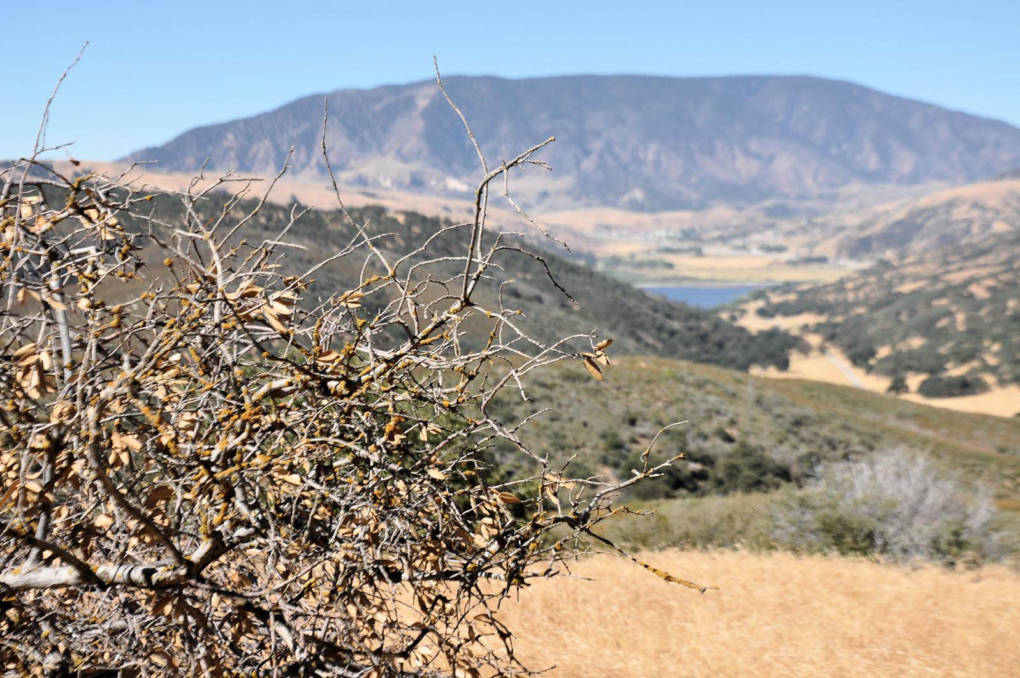Charles Brown was one of the first to question the supervisors, LAist reported.
“Are you seriously considering a development on substantial wildlife acreage, in the middle of a mountain range with a substantial drive from any job centers, in an area with no local water supply in the midst of expectations of water shortages across the western U.S., in a historic burn area in the new abnormal of multiple catastrophic wildfires across the rural urban interface?” he asked. “What could you possibly be thinking?”
Still, county planners and fire officials signed off on the project, and developers said the community 65 miles north of downtown Los Angeles would be built to minimize fire hazards and roads would be widened to help people evacuate if there is a fire.
Greg Medeiros, a vice president with Tejon Ranch Co., said the development was planned in the flattest areas nearest to highways and would use anti-ember construction and buffers around homes. Four new fire stations would be built in the several villages planned.
Supervisor Kathryn Barger, who represents the area where the development would be built, spoke in favor of the project. She said she was confident concerns about impact on traffic would be alleviated and she was relying on the opinion of fire experts that the risk of fire was minimized.
She cited the state’s need for 180,000 new homes a year. She said the shortage had put a strain on affordability and the homelessness problem and suggested Centennial would contribute to solving those problems without creating the runaway development associated with Southern California.
“This is not just another sprawl project,” she said.
The state has deemed the area a “high” and “very high” fire hazard zone. There were 31 wildfires greater than 100 acres within 5 miles of the development, including four within its boundaries, in the past half-century, county planning documents said.
The project surrounded by miles of wilderness received a boost from several prominent environmental groups, such as Audubon, Sierra Club and Natural Resources Defense Council, who signed on in support a decade ago in exchange for developers conserving nearly 90 percent of the 420-square-mile property. Groups such as the Center for Biological Diversity have opposed the plan and said they may sue to stop it.
Supporters wore green “I support Centennial” stickers and opponents wore red stickers saying #StopCentennial and displaying the image of a condor, an endangered species in the area.
Supervisor Sheila Kuehl cast the lone dissenting vote, saying the destructive Woolsey Fire in her district had brought the project into focus for her. She said it wasn’t wise to build a city in such a remote location. She also doubted promises that half the people living there would be able to work locally.
“I think it’s a little bit of pie in the sky,” Kuehl said. “There’s an enormous number of things wrong with this project.”
Construction that has spread into mountainous forests and chaparral-covered canyons outside urban areas in recent decades has frequently been criticized as short-sighted after destructive wildfires.
Retiring Department of Forestry and Fire Protection Director Ken Pimlott told The Associated Press on Monday that government officials should consider banning such construction, though he wasn’t referring to any specific project.
Fresh on the minds of many speakers at the board meeting was the death and devastation last month from the Woolsey Fire that ripped through Malibu and the Santa Monica Mountains nearby and the Camp Fire in Northern California that killed at least 86 people, destroyed almost 14,000 homes and laid waste to the city of Paradise.
Vicki Kirschenbaum referred to the loss of Paradise when she asked supervisors to imagine months of drought, soaring temperatures and a neglected campfire getting out of control.
“Flames igniting highly flammable grasses, fire spreading house to house, consuming Centennial’s 19,000 homes. Fifty-seven thousand people desperately trying to evacuate with one major road out,” Kirschenbaum said. “You have the power to make sure that nightmare never happens.”

